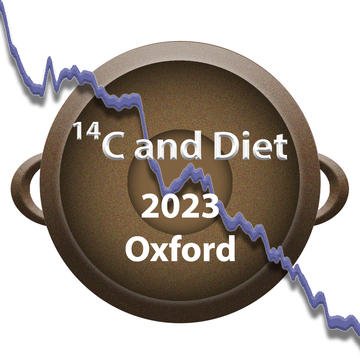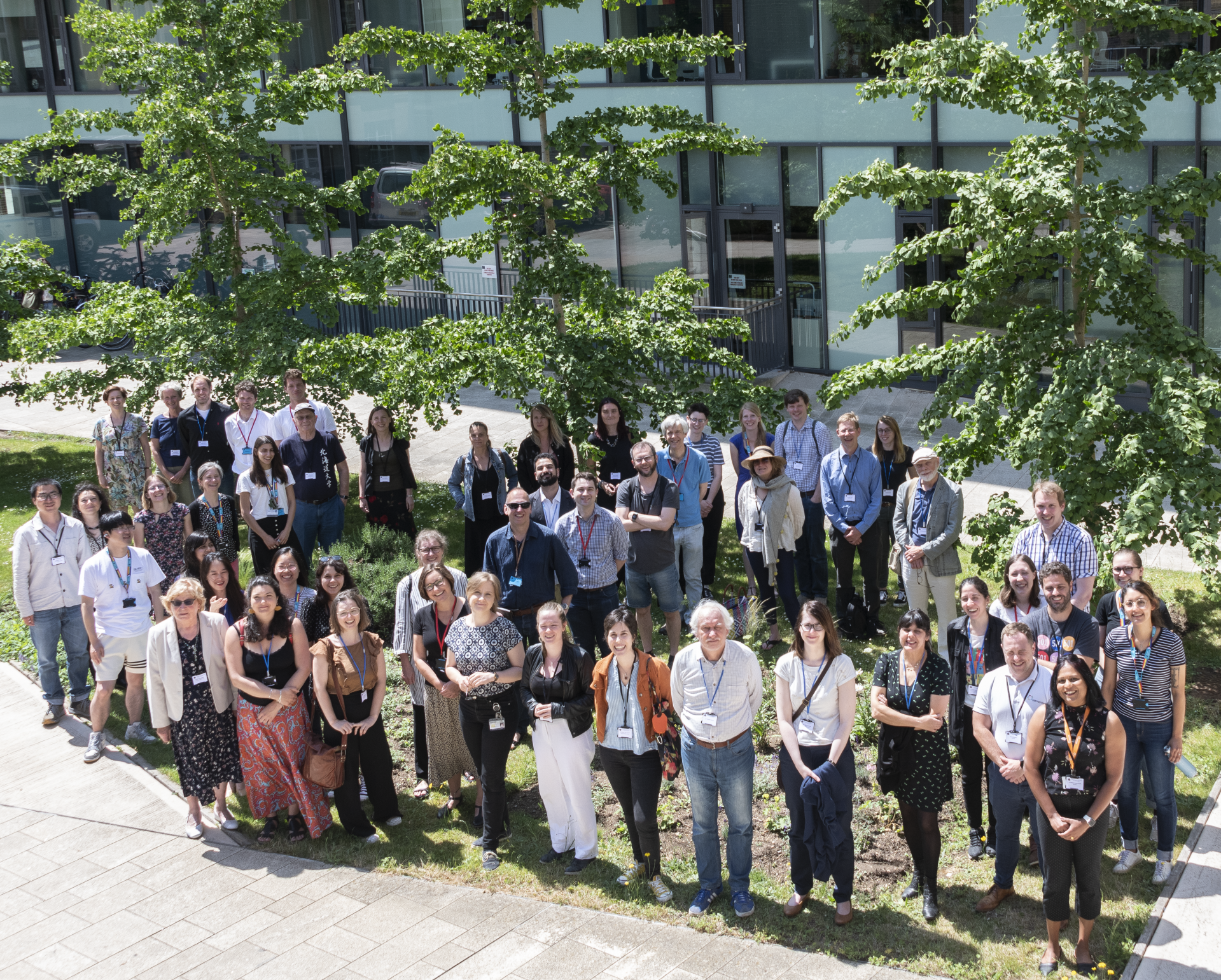Radiocarbon and Diet June 2023

Radiocarbon and Diet Conference
20-23 June 2023
University of Oxford
As in previous meetings, the focus of this conference will be on the relationships between radiocarbon, stable isotopes and diet. We welcome presentations that use radiocarbon and stable isotopes to explore diet, both in the past in fields such as archaeology and palaeontology, and in the present in forensics and ecology. We also welcome presentations that investigate the impact of dietary choice on the construction of reliable chronologies, and that explore the scale, variability and causes of radiocarbon reservoir effects in terrestrial, aquatic and marine contexts.
To contact the organising committee please email: c14diet2023@arch.ox.ac.uk
First Circular:



Prize winners:
Student Travel Grant winner (sponsored by IonPlus): Victor Morcillo, University of Bordeaux
Student Best Presentation winners (sponsored by IonPlus and the Meyerstein Fund): Corrie Hyland, University of Oxford, and Emilie Green, University of Aberdeen

Conference Summary:
85 delegates registered for the 3rd Radiocarbon and Diet conference, from 18 countries and 5 continents. The conference was held in a hybrid format, allowing more people to attend from as far away as New Zealand, the USA and China. Emmanuelle Casanova (MNHN) gave the plenary talk on the radiocarbon dating of dietary lipids, whilst Klervia Jaouen (GET), Fiona Petchey (University of Waikato) and Bente Phillippsen (NTNU) gave invited talks. Delegates presented an additional 32 oral papers and 11 posters, covering a diverse range of topics related to dietary isotopes and radiocarbon, freshwater reservoir effects and marine reservoir effects. Methodological developments focused on compound specific analyses – both of single amino acids and lipids, and modelling approaches and analysis of big data were discussed.
Publication:
The conference proceedings will be published in Radiocarbon. Please note that the deadline for abstract submission is 1st September. Please see the conference booklet for further information.
https://www.cambridge.org/core/journals/radiocarbon/information/author-i...
Sessions
- Reservoir effects: current challenges
This session will focus on the current challenges in quantifying and understanding the size and variability of marine and freshwater reservoir effects.
- Diet reconstruction: from modelling to diet, chronology and mobility
This session will examine how past diets are reconstructed, how this can be used to inform radiocarbon chronologies, and vice versa.
- Compound specific approaches
This session is devoted to the analysis of specific lipid compounds and amino acids for characterisation, radiocarbon and stable isotope analysis, and submissions may cover methodological or theoretical issues, as well as presenting new applications.
- Diachronic change in subsistence practices and high resolution approaches
This session will explore the potential of studying tissues that turn over at different rates or preserve incremental growth structures to explore the diachronic change in subsistence practices using radiocarbon and isotopic methods.
- Chronology of domestication
Chronology plays a significant role in understanding the process of domestication and the transfer of farming and horticulture practices between regions and groups of people. The session invites submissions on the challenges surrounding this complex topic, new methods and applications.
- Chronology of dietary practices
The change and maintenance of dietary practices over time requires both accurate chronologies and dietary information. This session will explore how chronologies have been built to examine these practices over time.
- Radiocarbon and diet in ecology and forensics
Whilst radiocarbon is routinely used to study the more distant past, it can be useful within the past 60 years. In this recent period, radiocarbon is exceptionally sensitive to the introduction of old carbon into the foodchain. This can make the construction of chronologies challenges, but provides an exciting potential for dietary studies.
Local organising committee
Rachel Wood, Christopher Ramsey, Rick Schulting, Amy Styring, Diane Baker, Robyn Mason, Amy Bogaard, Peter Ditchfield, Bethan Linscott, Lorena Becerra Valdivia, Dave Chivall



